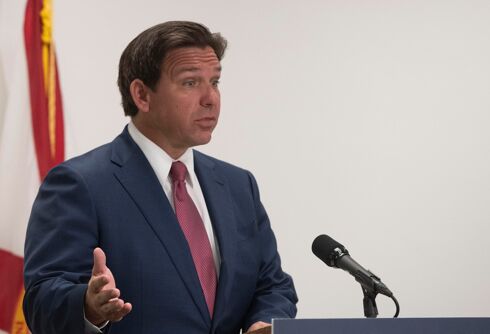NASHVILLE, Tennessee (AP) — Kentucky county clerk Kim Davis has become a hero to many conservative Christians who see her refusal to issue marriage licenses after the Supreme Court effectively legalized same-sex marriage as a litmus test for religious liberty in an increasingly secular culture.
But lost in the uproar are the voices of Christians, some equally conservative, who disagree with Davis’ stance and worry that holding Davis, the Rowan County clerk, out as a martyr will ultimately hurt the cause of religious liberty.
“I think she’s wrong on the merits, wrong theologically and her stance is harmful to Christians both in the religious liberty debate and in trying to present Christianity to the watching world,” said Peter Wehner, a Christian commentator who served in the last three Republican presidential administrations.
Many religious conservatives have shifted their focus in recent years from trying to stop the legalization of same-sex marriage to carving out protections for those who object to it on religious grounds. A Washington florist who was fined over her refusal to provide flowers for a same-sex wedding is celebrated by conservative Christian leaders across the U.S. who point to her story as an example of government overreach they fear will only grow.
But Davis’ position as a government official has some of those same conservative leaders warning that she may not be the ideal figure to rally around. As Rod Dreher, a senior editor at The American Conservative, put it in a recent essay, Davis’ case is “not the hill to die on.” Rather, a line in the sand should be drawn “when they start trying to tell us how to run our own religious institutions — churches, schools, hospitals, and the like — and trying to close them or otherwise destroy them for refusing to accept LGBT ideology.”
Both Dreher and Wehner have expressed concerns that Davis’ case will drive away support for religious liberty by stirring up anger at a public servant who refuses to do her job, let a subordinate do it, or resign.
In federal court, Davis testified that her objection to issuing marriage licenses to same-sex couples was not based on any sin she thinks the couple might commit. She said it was based on the Biblical definition of marriage as “a union between one man and one woman.”
That’s different from giving licenses to people who have been divorced, she said. The Bible prohibits divorce in most cases, but Davis said, “That’s between them and God.”
Asked in court why she doesn’t resign her position Davis said, “Because if I resign, that leaves my deputies to deal with this.”
Before she was jailed for five days for disobeying a court order, Davis refused to let anyone in her office issue marriage licenses. In court she pleaded for an accommodation, changing the licenses so that they do not bear her name.
“There is a solution out there that everybody can be happy, and it can be done so that nobody has to be compromised in any way,” she said.
Southern Baptist Convention leader Russell Moore recently helped put together a legal guide for churches called “Protecting Your Ministry from Sexual Orientation Gender Identity Lawsuits.”
He shares the concern of some other conservative Christians that the religious liberty rights of a government official should not be conflated with that of a private citizen. But he also believes the entire conflict with Davis could have been avoided.
“I hope that what comes out of the Kim Davis case is that we agree to sit down and find a way to protect the consciences of people when it comes to issues they cannot morally endorse,” he said. “The state of Kentucky so far doesn’t have much of an answer besides jailing people.”
This material may not be published, broadcast, rewritten, or redistributed.













